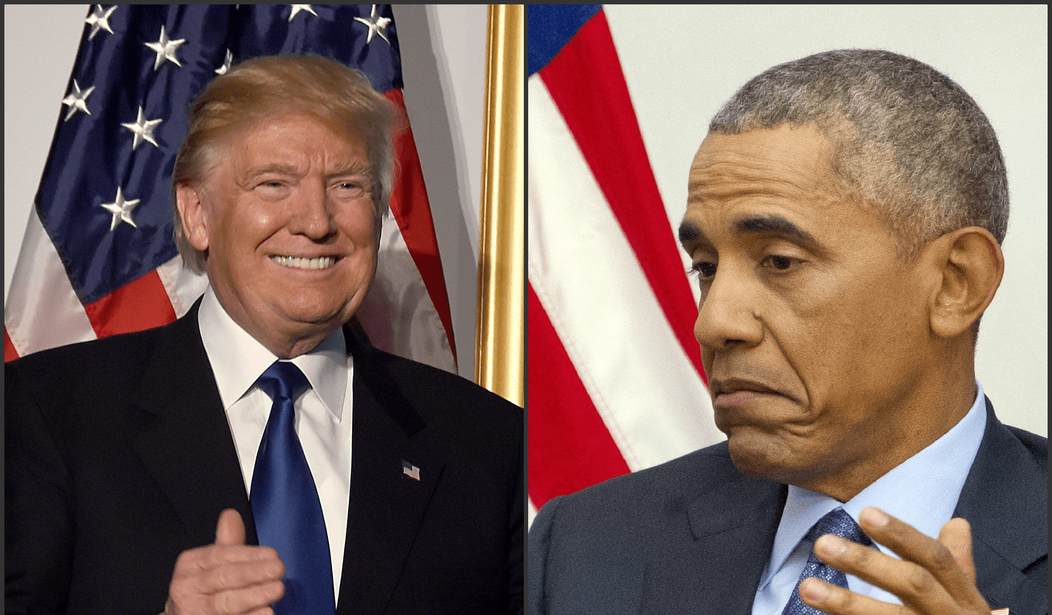A conservative black woman, the daughter of immigrants, admitted it will be a struggle to reverse the stereotypes and bring the black community around to conservatism and the Republican Party. She did emphasize, however, that while the black community may be proud of Barack Obama as the first black president, Donald Trump has arguably been better for them, economically.
“I’d like to believe that the first black President of the United States improved race relations, but he didn’t,” Patrice Lee Onwuka, a senior policy analyst at the Independent Women’s Forum (IWF), told PJ Media at the Conservative Political Action Conference (CPAC).
She said having Obama as president “certainly made the black community feel proud — and rightly so — to have a black president, but if his policies are actually not helping you, you should ask, ‘Well, we got a first black president, but what else did we get for that?'”
“Now, we’ve got a president who we may not agree with on everything, but we’re seeing historically low unemployment rates. We’re seeing underemployment — which is people who are working part-time but really want a full-time job — starting to decline. We’re starting to see the gap close between labor participation for whites and blacks in the workforce,” Onwuka told PJ Media. “It’s really remarkable.”
Onwuka even suggested that conservative government reforms could gain support among minority communities. “I hear a lot about, ‘Well, I want to make sure that the poor people are taken care of.’ That’s a great open door,” the IWF analyst said. “I believe in the social safety net, and a lot of conservatives and some libertarians do as well.”
“But we believe in targeting the safety net to those people who need it most,” Onwuka explained. “When you put it in those terms, people say, ‘Yeah, of course.’ I don’t think that if you’re able-bodied, if you are not sick, if you don’t have any mental illnesses, and you can work and we have a robust economy, you should be able to work, and people will agree with that.”
Reforms to safety net programs like Social Security, Medicare, and Medicaid do not involve dismantling them, but making them more effective at helping those who need them most. Rethinking the size and scope of the federal government can be rather intuitive, and gain broad support.
“Maybe there’s a role for government, but that role doesn’t need to be this big,” Onwuka said, holding her hands far apart. “It probably needs to be this big,” she added, suggesting a much smaller size. “And maybe it’s not the federal government, maybe it’s your local government.”
The IWF analyst suggested that the largest struggle in convincing women, immigrants, and the black community to consider conservatism and the Republican community is “stereotypes.” She confided, “People assume that I belong to the Democratic Party and I lean Left, just because of the way I look, and I happen to be an immigrant.”
Onwuka’s own personal story is exactly the opposite, however. Her parents grew up on the tiny island of Montserrat, a Caribbean island under British rule. “The government owns half of everything, so you don’t have that entrepreneurial spirit, especially among young people,” she said of her ancestral home. “And if you’re not wealthy, if you’re not well-connected, you’re probably not going to get to go to college.”
“Looking thirty years down the line, my parents wanted more for me and my brothers, and we left everything,” she confided. “We came here with five suitcases of clothes, and we left a nice middle-class lifestyle overlooking the beach. I mean, we left a lot behind, but it was worth it. What we’ve been able to build, just based on hard work, grit, and determination, you can’t build that anywhere else in the world.”
That determination for a better life runs strong within the black community, Onwuka suggested. “They want their children to be able to have generational wealth, something that is a struggle in the black community. They recognize entrepreneurship is a way of achieving that, and they realize that even a little too much government regulation on their businesses actually hampers their ability to grow.”
By reaching people where they are and looking beyond stereotypes, Onwuka said she has been able to convince them to become independent. “They say, ‘I may not be a full-force Republican, but I’m willing to be independent.’ That’s a really great open door for us to start to reach out to women, to women of color, about being independent and thinking for yourself,” she told PJ Media.
Even so, she admitted that there is a deeply-ingrained fear of conservatives and Republicans among many communities she takes part in — women, black people, and immigrants. Especially in the wake of the white nationalist riots in Charlottesville, Va. last summer, fear of President Donald Trump in particular has grown among minorities.
The first way to overcome this fear, Onwuka suggested, is “to call out wrong when it’s wrong” by explicitly rejecting all racist movements. Beyond this, she emphasized a message, “You don’t have to like everything about a politician, but when you recognize how they’re helping your community, I think that’s how you have to outweigh it.”
“Issues of race and immigration are deeply personal, but when you also understand that conservatives believe in granting freedoms and rights to people of color, to immigrant communities. That’s also a way to build that bridge,” Onwuka said.
As for women, the Independent Women’s Forum emphasizes that “all issues are women’s issues — not just reproductive rights, but women touch every issue.” The IWF analyst explained, “we talk to women about taxes, we talk to women about occupational licensing reform — the government giving you a permission slip to start your own business. We put it in terms that are very personal and individual, and we talk about the solutions.”
“And not every solution is government-based,” Onwuka insisted.
More than anything else, she said women, black people, and immigrants need to hear that can be independent. “Think independence, that’s what I tell people,” she said. “Don’t be afraid to be independent.”
Watch Onwuka’s interview with PJ Media’s Tyler O’Neil below.
Tyler O'Neil is live at CPAC with Independent Women's Forum’s Patrice Lee Onwuka!
Posted by PJ Media on Thursday, February 22, 2018









Join the conversation as a VIP Member